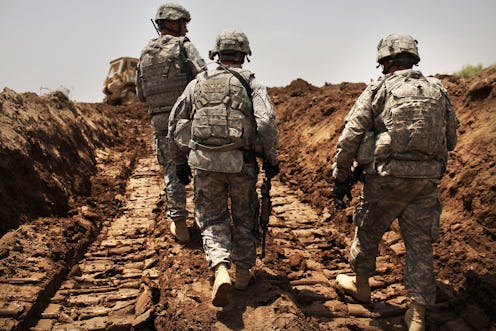News
Iraq Sees Spike In Violence as Militants Take Over
A series of attacks hit Baghdad Sunday, officials said, with bombs killing at least 20 people in the Iraqi capital, even as Iraqi security forces continue to fight militants from al-Qaida's local branch who took over two key cities in the country's west a few days ago. The assaults are most likely a hope to distract the security forces, who, U.S. Secretary of State John Kerry said Sunday, will have to fight the militants on their own.
Ten people died and another 26 were wounded in Baghdad's Shiite northern Shaab neighbourhood Sunday, when two parked car bombs detonated near a restaurant. Another car explosion killed five and injured another 10 in a different Shiite district of the capital, while several more bombings in the commercial city center left five more civilians dead and scores more injured.
The attacks come as Al-Qaeda-linked militants — known as the Islamic State in Iraq and Levant — fight security forces to keep control of Fallujah and parts of Ramadi, the two western cities which they recently took over in a shocking strike against Iraqi Prime Minister Nouri al-Maliki's Shiite-led government.
Although there was some surmising as to whether the uprising would mean the return of sme U.S. military intervention, Kerry dismissed the idea Sunday, saying that while the U.S. would support Nouri al-Maliki's fight against the gunmen, they would not be putting any American boots on the ground.
"We are very, very concerned about the efforts of al-Qaeda and the Islamic State of Iraq in the Levant, which is affiliated with al-Qaida, who are trying to assert their authority not just in Iraq, but in Syria," Kerry said. "These are the most dangerous players in that region. Their barbarism against the civilians in Ramadi and Fallujah and against Iraqi security forces is on display for everyone in the world to see."
He added, however: "This is a fight that belongs to the Iraqis. That is exactly what the president and the world decided some time ago when we left Iraq, so we are not obviously contemplating returning. We are not contemplating putting boots on the ground. This is their fight. … We will help them in their fight, but this fight, in the end, they will have to win and I am confident they can."
Fallujah — which became infamous in 2004, after militants killed American security contractors and hung their burned bodies from a bridge — and Ramadi are part of the desert area that borders Jordan and unstable Syria. The Anbar province, as it is called, was at the center of the Sunni insurgency that fought against both the Iraqi government and American troops, after the 2003 U.S.-led invasion that removed Saddam Hussein from power.
